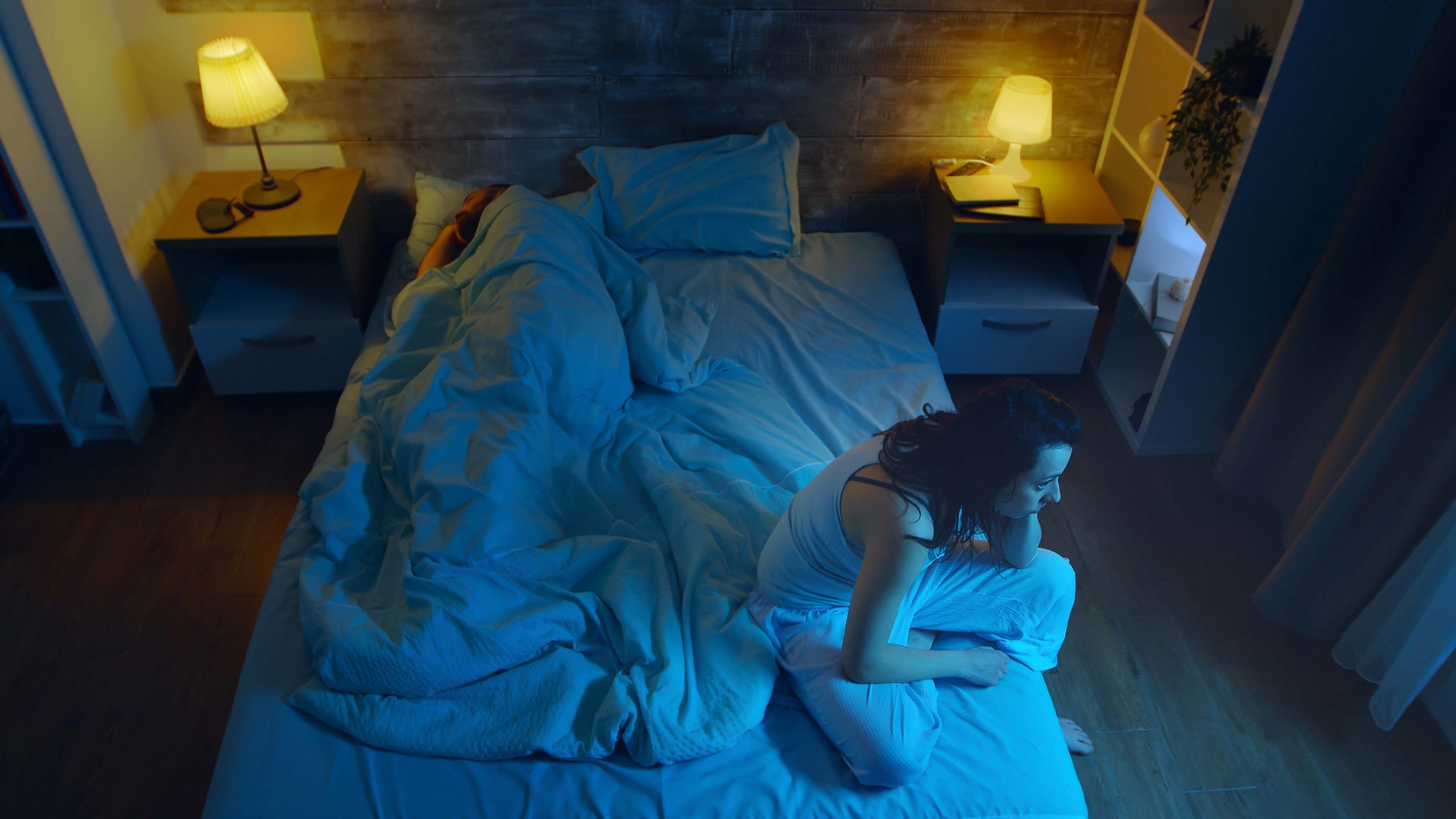How many hours do you sleep each day? How would you describe the quality of your sleep? In today’s contemporary world, we navigate through lives dictated by increasingly hectic schedules, surrounded by an environment overloaded with information and stimuli. Messages advocating for productivity and performance, at times detached from context and treated as an end in themselves, proliferate on social media and in the mainstream. As South Korean philosopher Byung-Chul Han highlights in his work «The Burnout Society,» the 21st-century society has shifted from being disciplinary to becoming performance-oriented. Amidst the deluge of information, the implicit and perpetual pressure to enhance «productivity,» and various factors influencing our sleep hygiene, among others, insufficient sleep is recognized as a «silent epidemic,» impacting the lives of millions. Globally, 62% of adults report unsatisfactory sleep. In Spain, as per data from the Ministry of Health, sleep disorders affect 50.6% of men and 58.1% of women. Furthermore, Spain leads in the consumption of benzodiazepines, commonly used to induce sleep.
These statistics indicate a significant issue in our society, extending beyond mere sleep deprivation. Sleep is entangled in numerous processes crucial for overall well-being, encompassing both psychological and physical health. Persistent sleep deprivation is linked to an elevated risk of diverse health issues.
Why Do We Sleep?
It is common to perceive sleep as a period of complete inactivity, where the body and brain «shut down» until we awaken. However, in reality, during these hours of rest, the brain (along with the rest of the body) undertakes several crucial functions. For example, sleep encompasses processes related to memory consolidation and the drainage and elimination of specific toxins and proteins that accumulate throughout the day (some associated with Alzheimer’s disease). In general, during these hours, our body initiates actions aimed at rest and the «repair and maintenance» of all systems. Therefore, consistently neglecting these needs raises the associated risks and their impact on various aspects of our health.

Sleep Quality
Regarding sleep quality, there are three elements to consider: duration, which should be sufficient to feel alert and rested during the day (in the adult population, it is estimated that this time should be between 7 to 9 hours); sleep continuity, as sleep periods should be continuous without interruptions or fragmentation; and depth, as sleep should be deep enough to be restorative.
Lack of Sleep
Scientific evidence supporting the detrimental effects of sleep deprivation is extensive. According to the American Psychological Association, individuals with sleep disorders are significantly more prone to developing psychological and physical problems. Numerous studies indicate that people experiencing insomnia have a heightened risk of developing various psychological issues, including depressive disorders and problems related to anxiety and stress (Baglioni et al., 2013).
Furthermore, research suggests that Rapid Eye Movement (REM) sleep, the stage where the most vivid dreams occur, plays a crucial role in emotion regulation. A 2015 study published in the «Journal of Neuroscience» proposes that the disruption of REM sleep can amplify emotional reactivity and contribute to mood disorders (Vandekerckhove et al., 2015).
Other research focuses on how sleep impacts the activity of the hippocampus, a brain region involved in processes related to encoding and consolidating memory.
It would be impractical to delve into all aspects of health affected by a lack of sleep. In this article, we will concentrate on the cognitive and psychological aspects most susceptible to insufficient sleep or poor-quality sleep.
If you are currently not getting enough sleep or experiencing poor sleep, you probably notice that all those fundamental cognitive processes that enable us to face everyday situations begin to function poorly, even after just one night of insufficient sleep. From alertness to memory processes, and the regulation of emotions, almost all our abilities start to function less effectively.

Functions affected by lack of sleep
- Processing Speed and Response Time: We become slower. Lack of sleep is associated with psychomotor slowing, making us feel slower, clumsier, and creating significant difficulty in facing the day.
- Alertness, Attention, and Concentration: Attention is the "first gate" of our cognitive system. Sleep affects our ability to stay alert, focus our attention, and sustain that attention in any activity. Maintaining a conversation, reading, cooking, concentrating in class or at work, or simply engaging in leisure activities can become very frustrating tasks.
- Executive Functions: Getting little or poor-quality sleep affects our ability to plan a series of actions directed toward a specific goal, the ability to inhibit responses or distractions, and our ability to retain the information needed to perform a task. We feel much less "agile," and it is more likely that we may even forget what we were doing.
- Creative and Innovative Thinking: Creative, divergent, and innovative aspects of cognition are greatly affected by a lack of sleep. Imagining, generating, and implementing different response alternatives to a problem (what we call problem-solving) can be severely impacted.
- Sleepiness and Involuntary Microsleeps: Falling asleep involuntarily can pose a significant risk, especially when it happens during activities like driving or tasks with potentially dangerous circumstances (handling machinery, etc.).
- Memory: The ability to retain information and access it, as well as the consolidation of memories (closely related to sleep), is similarly affected.
- Irritability: Our way of behaving, perceiving what we feel, and responding to situations is also affected. Irritability is usually evident: after a bad night or poor sleep, everything seems worse, and we are more prone to react with greater impulsivity and irritability.
- Long-term Health Risks: Sustained lack of sleep is related to health problems, affecting the immune system, cardiovascular system, diabetes, obesity, migraines, and psychological problems such as depression or anxiety, among many other areas of health. Poor sleep affects the entire body and all areas of daily life.
Tips for Better Sleep
If you’re having trouble sleeping, learning about its importance and the potential consequences can be frustrating. It’s neither beneficial nor necessary to be alarmed; instead, take action to analyze your specific situation and identify gradual improvements.
There are some simple measures that can enhance your chances of experiencing a good night’s rest, and you can certainly find many tips online. However, online advice can only offer general recommendations that may not be suitable or entirely tailored to your situation. Therefore, the primary recommendation is to consult with a healthcare professional and consider undergoing a specific sleep study that analyzes various variables while you sleep. Psychologists focus on the behavioral aspect, including thoughts, your learning history, and current variables that may be maintaining the problem, to create a plan that can maximize the chances of gradually improving your sleep. One of the factors most related to a lack of sleep, especially the ability to fall asleep, is stress. Going to bed with worries, attempting to deal with those thoughts, and ending up in a spiral from which it is difficult to escape constitutes a vicious circle that generates an alert response during which it is almost impossible to fall asleep.

Treatments exist for many common sleep disorders. Cognitive-behavioral therapy can help many people with insomnia sleep better, and some medications can also be useful in specific situations. Other problems such as sleep apnea (interrupted sleep due to respiratory difficulties) benefit from the use of a specific device (CPAP machine) that improves rest by keeping the airways open. Therefore, it is always advisable to consult with a healthcare professional to rule out organic problems not related to lifestyle or other psychological variables.
On the occasion of World Sleep Day, the World Sleep Society has compiled two sets of recommendations (one for adults and one for children) with tips for achieving healthier sleep. Here are some of them:
- Set a fixed time to go to bed and wake up.
- If you take naps, they should not exceed 30 minutes.
- Avoid toxins such as alcohol and tobacco.
- Avoid caffeine six hours before bedtime.
- Try to have light dinners.
- Exercise regularly, but it should be avoided in the evening. The optimal time for exercise is in the morning and ideally outdoors.
- Use comfortable bedding.
- Find a comfortable sleeping temperature and keep the room well-ventilated.
- Block all annoying noises and eliminate as much light as possible.
- Use the bed only for sleeping or having sexual relations.

Furthermore, exposing oneself to natural light in the mornings can promote the proper functioning of circadian rhythms that our body relies on to regulate alertness and vigilance levels. When we wake up and perceive light, the body ceases to generate melatonin, a hormone heavily involved in sleep-wake cycles, signaling to our body that it is time to sleep. This is why it is also recommended to establish a pre-sleep routine that avoids screens or other sources of light, signaling to our brain to start preparing for rest. The same principle applies to caffeine, which hinders us from perceiving the feelings of tiredness that aid in falling asleep.
Once again, while these tips may be helpful, if you feel that lack of sleep has a significant impact on various areas of your life, it would be highly advisable to consult with a healthcare professional who can help you conduct an analysis tailored to your circumstances. Considering all the functions affected by lack of sleep, it is worth addressing it as a priority: improving your sleep quality may lead to a noticeable improvement in aspects you may not have associated with the quality of your sleep.
Abouth the author
Alejandro Sancha is a General Health Psychologist and Clinical Neuropsychologist. He also has a postgraduate degree in child and adolescent psychology. He has experience with various psychological problems (anxiety, mood disorders, stress, ADHD, rehabilitation in acquired brain injury, among others) and works from an evidence-based perspective. His passion for understanding human behavior led him to dedicate himself to the clinic, being very important for him that his clients feel comfortable from the beginning, understanding how their discomfort originates and how it is maintained today, in order to generate the necessary tools that allow them to achieve the greatest possible well-being in their lives.
Division of Psychology, Psychotherapy and Coaching
Psychologist
Children, adolescents and adults
Languages: English, French and Spanish

